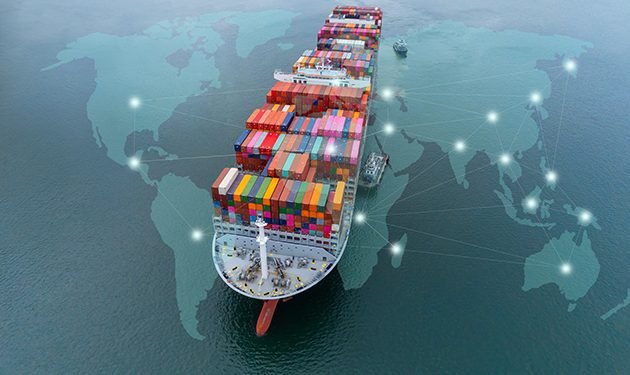By Eva Richardson | The Logistic News | March 28, 2025
Amid escalating global tensions and the ripple effects of container crises, India is moving swiftly to overhaul its maritime logistics framework. A recent report by the Parliamentary Standing Committee on Transport, Tourism, and Culture underscores the urgency of strengthening the country’s shipping sector to withstand geopolitically induced disruptions.
The panel’s recommendations arrive at a critical juncture, as fragile supply chains and fluctuating freight routes increasingly expose vulnerabilities across Asia-Europe shipping lanes. These concerns have been amplified by continued unrest in key maritime corridors and the strategic implications of rerouted global trade patterns.
A Call for Structural Overhaul
Among the most prominent proposals is the development of a centralized digital platform to enable real-time container tracking across India’s major ports. This initiative aims to resolve persistent delays and improve transparency for both domestic and international shippers.
The committee also urged the creation of a Maritime Response Unit, tasked with managing emergency scenarios linked to geopolitical shocks—whether due to regional conflicts, sanctions, or sudden closures of key trade routes.
“With the dynamic nature of global trade, India must not only build capacity but also resilience. These recommendations reflect that dual mandate,” a senior official involved with the panel told The Logistic News under condition of anonymity.
Clarifying the Future of Shipping Corporation of India
Another focal point of the committee’s report is the ongoing ambiguity surrounding the Shipping Corporation of India (SCI). Despite its strategic importance, the report notes a lack of direct budgetary allocations and insists on a transparent transition plan to avoid compromising India’s core shipping operations during ongoing privatization efforts.
The panel pressed the Ministry of Ports, Shipping and Waterways to outline its long-term vision for SCI’s modernization, governance, and alignment with national maritime goals.
Assessing Sagarmala’s True Impact
India’s ambitious Sagarmala initiative, designed to modernize ports and reduce logistics costs, also came under scrutiny. The committee called for a comprehensive performance audit to ensure that investments in port-linked infrastructure have yielded tangible outcomes such as job creation, trade growth, and improved connectivity.
Future funding under Sagarmala, the panel advised, should be tied to performance benchmarks, with clear execution timelines and enhanced transparency in reporting project milestones.
Green Shipping Takes Priority
In a forward-looking move, the committee proposed the establishment of a Green Shipbuilding Innovation Fund. The fund would support research and development for low-emission vessels and cleaner maritime technologies, further aligning India’s shipping sector with its broader environmental commitments under international climate frameworks.
A Path Forward
With India aspiring to become a global trade hub, these measures are timely and essential. The report reinforces the government’s commitment to scale maritime capacity to 10,000 million tonnes annually by 2047 under the Maritime India Vision, but highlights that capacity alone is not enough.
“Efficiency, agility, and innovation must underpin our shipping ecosystem if India is to thrive in an era of global complexity,” the report concludes.
As geopolitical risks continue to shape logistics flows worldwide, India’s proactive stance may set the tone for other emerging economies navigating the same storm.
About the Author
Eva Richardson is a senior correspondent at The Logistic News, covering shipping, trade policy, and global logistics trends. She brings over a decade of industry insight to her analysis of geopolitical impacts on supply chains.























